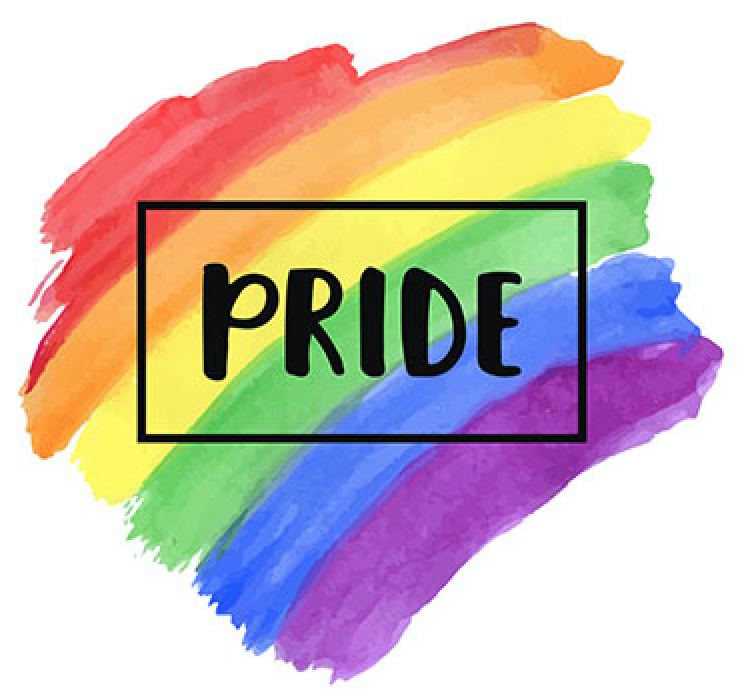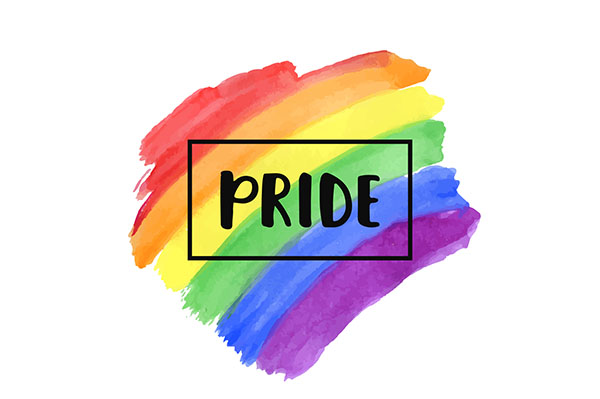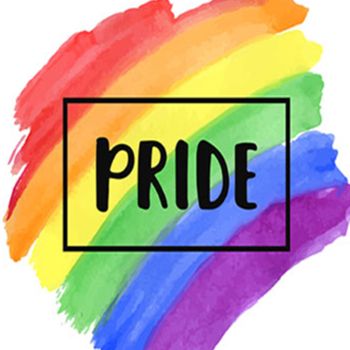The LGBTQ Community's Path To Forgiveness: Understanding Progress And Acceptance
When we think about the journey of any group that has faced hardship, the idea of moving past hurt often comes up. For the LGBTQ community, a history of struggle is very real, and so, the question of whether the lgbtq community has forgiven is a truly important one to consider. It’s not just about forgetting what happened, but rather about a much deeper process of healing and moving forward, which is something many people are curious about.
This path is not a simple line from pain to complete ease; it's a winding road with many turns. It involves confronting past injustices, celebrating every small victory, and constantly working towards a more fair and kind world. The idea of forgiveness for a whole community, you know, is quite different from what it means for one person.
It means looking at how people come together to heal, to educate, and to ensure that the future is brighter than the past. So, let's explore what this journey of acceptance and, in a way, communal understanding truly involves, and what it might mean for the idea of forgiveness within this vibrant community.
- Rochester Civic Center
- Amc Independence Commons 20 Theater
- Deandre Hopkins Height Weight
- Actor Dean Butler
- When Did Bob Marley Die Age
Table of Contents
- A History of Harm and the Quest for Understanding
- Steps Towards Acceptance: A Global and Local Look
- The Meaning of Forgiveness in a Community Context
- Celebrating Milestones and Looking Ahead
- Building Bridges: What Forgiveness Might Look Like
- Frequently Asked Questions (FAQ)
A History of Harm and the Quest for Understanding
The Weight of Past Injustices
People across the globe, it's almost unbelievable, face severe challenges, including violence and unfair treatment. Sometimes, they even endure very harsh punishments, like torture, or even the loss of their lives. This happens simply because of who they care for, how they appear, or who they truly are inside. This reality highlights the deep scars left by prejudice, and so, the idea of the lgbtq community has forgiven becomes quite complex when you think about it.
For many years, members of the LGBTQ community have been targets of discrimination, not just in personal interactions but also in laws and societal norms. This has meant losing jobs, being denied housing, or facing public shaming, which is truly disheartening. The weight of these past harms, you know, is something that doesn't just disappear overnight.
It's a collective memory, a shared experience that shapes how the community views the world and its place within it. Addressing these historical wrongs is a fundamental step, really, towards any form of healing or reconciliation. It's about acknowledging the pain that was caused and understanding its lasting effects on individuals and on the community as a whole.
Defining Identity: Sexual Orientation and Gender
To truly grasp the challenges faced, it's important to understand what we mean by sexual orientation and gender identity. Sexual orientation, for instance, is a very personal part of who someone is. It includes the deep emotional and romantic pull, or even a physical connection, someone feels towards another person. This also covers the actions or social connections that can come from such feelings, which is a bit of a broad idea.
In other words, sexual orientation is about a lasting pattern of emotional, romantic, and/or sexual attractions. These attractions might be to men, women, or both sexes, or to people of any gender, you know. It's a fundamental aspect of a person's identity, not a choice, and it shapes how they experience love and connection in the world.
Gender identity, on the other hand, refers to a person's inner sense of being male, female, both, neither, or somewhere else along the gender spectrum. This internal feeling may or may not match the sex they were assigned at birth, and that's a key distinction. Understanding these core parts of identity is really crucial for appreciating the experiences of the LGBTQ community and why the discussion around whether the lgbtq community has forgiven is so meaningful.
Steps Towards Acceptance: A Global and Local Look
International Calls for Rights
The push for LGBTQ+ rights isn't just happening in one place; it's a global movement. For example, during its 2020 universal periodic review cycle, the United States of America, you know, received important suggestions from several countries. Iceland, Belgium, France, and Malta, among others, offered recommendations specifically about LGBTQ+ rights. This shows that the world is, in a way, watching and encouraging progress.
These international recommendations highlight a growing worldwide recognition that LGBTQ+ rights are, actually, human rights. It means that nations are increasingly expected to protect their LGBTQ+ citizens from violence and discrimination, which is a significant shift. Such global pressure can really help to drive changes at a local level, making it easier for communities to advocate for themselves.
The fact that other countries are making these kinds of suggestions points to a shared understanding that everyone deserves to live free from fear and prejudice, regardless of their sexual orientation or gender identity. This collective effort, you see, is a vital part of building a more accepting world, where the idea of the lgbtq community has forgiven becomes more about moving forward in safety.
Shaping Young Minds: Inclusive Education
One of the most powerful ways to foster acceptance and reduce bias is through education. Inclusive school curriculum standards legislation, for instance, includes laws that require the teaching of diverse histories and cultures. This means not only including LGBTQ+ people, their history, and their contributions, but also, quite importantly, the stories of Black, Native, and Indigenous people, and people with disabilities.
This kind of curriculum helps young people develop a broader understanding of the world and the many kinds of people in it. It teaches empathy and respect from an early age, which is truly foundational. When students learn about different identities and experiences, they are less likely to hold prejudiced views as they grow older, and that's a very positive outcome.
Increasing the understanding of gender identity, sexual orientation, and even concepts like heterosexual bias, happens through these kinds of programs and resources. It's about building a foundation of knowledge that can challenge stereotypes and promote kindness, paving the way for a society where the question of whether the lgbtq community has forgiven becomes less about past harms and more about shared respect.
The Meaning of Forgiveness in a Community Context
Is Forgiveness a Collective Act?
When we talk about whether the lgbtq community has forgiven, it's important to ask: can a whole community forgive? Forgiveness is often seen as a very personal act, something one individual does to release anger or resentment towards another. But for a large, diverse group of people, the concept takes on a somewhat different meaning, you know.
A community isn't a single person with a single mind or feeling. It's made up of countless individuals, each with their own experiences, their own pains, and their own thoughts about reconciliation. So, there isn't one universal moment where everyone collectively decides to "forgive." It's much more nuanced than that, actually.
Instead, what we might see is a collective movement towards healing, justice, and a commitment to preventing future harm. This can involve advocating for policy changes, educating the wider public, and building spaces where people feel safe and valued. It's about creating conditions where individual forgiveness might become possible for some, while for others, the focus remains on accountability and progress.
Beyond Simple Forgetting: Reconciliation and Healing
Forgiveness, in this context, is certainly not about forgetting the past or pretending that harm never happened. That would be, in a way, a disservice to the struggles endured. Instead, it's about a process of reconciliation and deep healing that acknowledges the pain but also seeks to move beyond it in a constructive manner, which is a rather significant undertaking.
This often involves demanding accountability from those who have caused harm, whether they are individuals or institutions. It means working to dismantle the systems that allowed prejudice and violence to flourish in the first place. Without this acknowledgement and effort towards justice, genuine healing for many can be quite difficult, you know.
True reconciliation for a community might look like widespread acceptance, legal protections, and a shift in societal attitudes. It's about creating a world where the violence and inequality mentioned earlier are no longer a threat. This kind of healing is a long-term project, requiring ongoing effort and a commitment from everyone involved to build a better future.
Celebrating Milestones and Looking Ahead
Pride Month: A Time for Reflection and Joy
It is Pride Month, and this time of year is, truly, a wonderful opportunity to celebrate progress. It's also a chance to reflect on positive developments that have occurred since last year, which is something many people look forward to. Pride events, you know, are vibrant expressions of joy, resilience, and community spirit.
These celebrations are a powerful reminder of how far the LGBTQ community has come, from a time when simply existing openly was dangerous, to now, where millions gather to affirm their identities. They offer a space for people to feel seen, understood, and supported, which is very important for well-being. This sense of shared belonging is a crucial part of the community's strength.
While Pride is a party, it's also a protest, a reminder that the fight for full equality continues. It’s a moment to honor those who paved the way and to renew commitments for the work ahead. This blend of celebration and advocacy shows a community that is both looking back with respect and forward with hope, a clear sign of progress, you see.
Ongoing Efforts for Equality
The journey towards full equality is, without a doubt, a continuous one. We see this in various ways, such as the American Psychological Association (APA) policy on sexual orientation and gender identity, which is set to expire in 2031. This means that these guiding documents are regularly reviewed and updated to reflect the latest understanding and best practices, which is a really good thing.
Organizations like the APA are always working to increase understanding through publications, policy statements, programs, and other resources. This commitment to ongoing education and advocacy is vital for maintaining momentum. It ensures that knowledge about gender identity, sexual orientation, and related topics like lesbian and gay parenting continues to grow and spread.
These efforts aim to dismantle heterosexual bias and promote a more inclusive society. The work never truly stops, as new challenges and opportunities for growth constantly appear. This persistent dedication to progress is a key indicator of a community that is actively shaping its future, rather than simply dwelling on the past, which is quite admirable.
Building Bridges: What Forgiveness Might Look Like
Education as a Path to Empathy
If we consider what "forgiveness" might mean on a societal level for the LGBTQ community, one powerful aspect is the widespread adoption of empathy, which often comes from better education. When people learn about the real lives and experiences of LGBTQ individuals, stereotypes begin to break down, and understanding starts to grow, and that's a truly beautiful thing.
This means going beyond just knowing definitions; it means hearing personal stories, learning about history, and seeing the humanity in every person. Inclusive school curricula, for example, play a huge role in this. By teaching about the contributions and challenges faced by LGBTQ+ people, along with other marginalized groups, schools can cultivate a generation that is more accepting and less prejudiced.
When society becomes more informed and empathetic, the conditions that led to past harms begin to lessen. This shift in collective consciousness, you know, is a profound form of progress, and it helps create a world where reconciliation and a sense of shared community can truly take root. It's a foundational step towards a future where the idea of the lgbtq community has forgiven becomes less about an act of letting go, and more about a shared embrace of kindness.
Policy Changes and Legal Protections
Another crucial element in this ongoing journey is the implementation of strong policy changes and legal protections. Laws that safeguard LGBTQ+ individuals from discrimination in housing, employment, healthcare, and public spaces are absolutely essential. These legal frameworks provide a basic level of safety and dignity that was historically denied, which is a very real improvement.
When governments enact and enforce such protections, it sends a clear message that discrimination is unacceptable and that all citizens deserve equal treatment. This legal recognition is, actually, a tangible form of societal apology for past injustices. It creates a more equitable playing field, allowing LGBTQ+ people to thrive without constant fear of unfair treatment.
Furthermore, policies that support inclusive families, protect youth, and ensure access to affirming healthcare contribute significantly to the well-being of the community. These systematic changes are, in a way, the public demonstration of a society moving towards greater acceptance and fairness. You can learn more about human rights on our site, and link to this page for more information on specific legal protections.
Frequently Asked Questions (FAQ)
Has the LGBTQ community seen progress in acceptance?
Yes, absolutely. There has been significant progress in acceptance for the LGBTQ community globally, and that's a really positive development. Pride Month, for instance, is a very clear example of this, offering a time to celebrate how far things have come and reflect on positive developments. More people are understanding gender identity and sexual orientation, and there are more inclusive laws and policies being put into place, which is quite encouraging.
What challenges still face the LGBTQ community?
Despite the progress, the LGBTQ community still faces many challenges, you know. People around the world continue to experience violence and inequality, sometimes even torture or execution, just because of who they are or who they love. Discrimination in various aspects of life, like employment or housing, remains a real issue for many. There's also ongoing work to increase understanding and overcome biases, which is a continuous effort.
How are LGBTQ+ rights protected globally?
LGBTQ+ rights are increasingly recognized as human rights on a global scale. Countries like Iceland, Belgium, France, and Malta have, for example, made recommendations to other nations regarding LGBTQ+ rights during international reviews. This international pressure and collaboration help to push for legal protections and greater acceptance worldwide. Organizations also work to increase understanding and advocate for policies that protect these rights, which is quite important.

Pride Month: LGBTQ+ and Domestic Violence - Hope's Door

Brands Giving Back to the LGBTQ+ Community – BELLO Mag

Lgbtq+ club